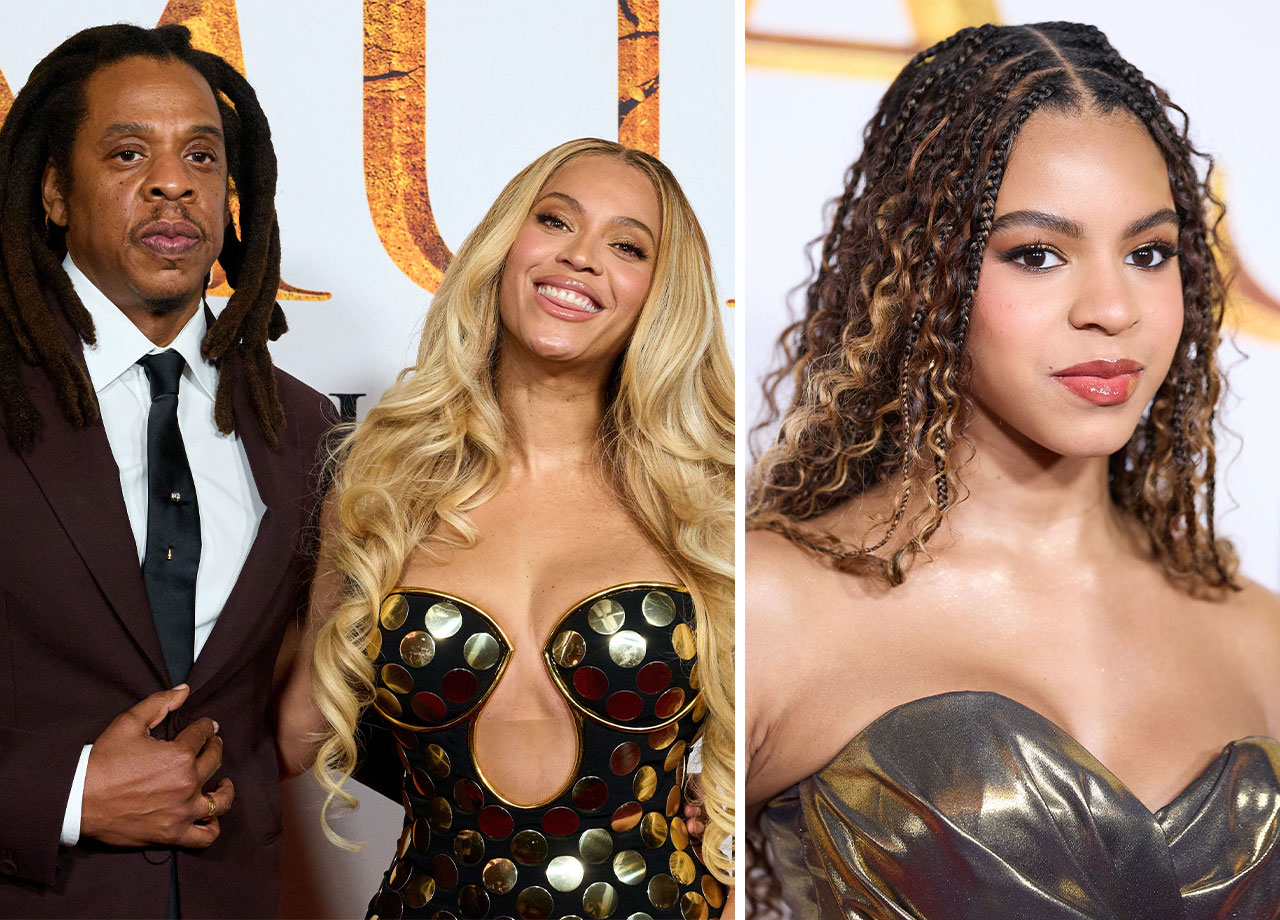
Beyoncé Reportedly Focused on 'Safeguarding' Blue Ivy’s Brand and 'Creating Legacy' as Jay-Z Faces Scandal and Criticism
The family presented a united display at the Los Angeles premiere of Disney’s Mufasa: The Lion King last month, as the "99 Problems" rapper, 55, and "Cuff It" hitmaker showed their support for their eldest daughter, who voices the character of Kiara. Grayce McCormick, founder of Lightfinder PR, commented that Beyoncé's action to secure Blue Ivy's trademark is a strategic move demonstrating "her keen awareness of personal branding and legacy building"
McCormick dished to the U.S. Sun that "in recent appearances, Beyoncé has struck a balance between relatability and exclusivity, from her Renaissance World Tour to her curated presence at high-profile events." She went on: "These appearances not only reaffirm her iconic status but also introduce Blue Ivy into the public consciousness as an emerging talent."
The expert also shared: "Blue Ivy's surprise performances during the tour, however, did more than that. They highlighted a multi-generational legacy in the making, a unique narrative in entertainment branding that piques curiosity about Blue Ivy's future. From a PR perspective, this move is consistent with Beyonce's reputation as a meticulous and forward-thinking businesswoman."
The PR insider went on: "It demonstrates her understanding of intellectual property in a way that shields her family and aligns with her brand narrative of empowerment and ownership. McCormick suggested that the "Texas Hold 'Em" singer could further Blue Ivy's career by using her influence to open doors for her daughter, while also giving her space to form her own unique identity. Beyoncé, who has been married to Jay-Z since 2008, also shares 7-year-old twins Rumi and Sir with him.
Benefits Of Trademarking Blue Ivy's Name, According To A PR Insider
McCormick also noted: "Collaborations on philanthropic initiatives, a gradual introduction to creative projects, and opportunities for Blue Ivy to speak or appear independently will help shape her narrative. It's crucial that this narrative resonates with authenticity, reflecting the values Beyonce herself champions. This authenticity will reassure fans and readers about the sincerity of the branding strategy.
She mentioned that by combining guidance with opportunities for Blue Ivy to independently showcase her talents, the Renaissance songwriter is not only laying a solid groundwork for her daughter's future career but also demonstrating a remarkable model of parenting in the spotlight. This method guarantees that Blue Ivy's professional path is both strong and flexible for her future goals, cementing the Cowboy Carter artist's legacy as a mother and an international figure.
According to the insider, a name like Blue Ivy transcends personal identification—it holds substantial cultural and commercial value thanks to her famous parents. By securing a trademark, the family safeguards their child's name from unauthorized use in products, services, or endeavors that could damage their reputation or take advantage of their identity.
Beyoncé's company, BGK Trademark Holdings LLC, first tried to trademark her daughter's name in 2012 but faced opposition from a wedding planner with a similar business name in Massachusetts.
In 2020, the USPTO ruled that the names were not similar enough, allowing Beyoncé to win the dispute. However, her lawyers did not proceed with the application, and it was abandoned. When she reapplied in November 2023, a new issue arose because a Wisconsin clothing store used a similar logo.
Despite the store not opposing the application, an examiner found the names too alike. After contesting this decision, Beyoncé has now been permitted to continue the process. The approval for publication in The Trademark Official Gazette was scheduled for December 31, 2024.
Inside Jay-Z's Scandal And Legal Battle
The family has faced significant challenges recently, with Jay-Z vehemently denouncing the aforementioned lawsuit allegations as "blackmail" and "lies." According to TMZ, the lawyer for the 4:44 artist will argue in court that the law the accuser is using wasn't in effect when the incident supposedly occurred. The lawsuit involves a woman, known as Jane Doe, who alleges that on September 7, 2000, she tried to enter the MTV Video Music Awards in New York City without a ticket.
A limo driver, claiming to work for Diddy, 55, invited her to an afterparty. She says she was then taken to a house and assaulted by both rappers. Jay-Z's lawyer has countered these claims, asserting that the location of the attacks couldn't have been in New York City. The lawyer also noted that even if the law were applicable, it would only pertain to events in New York City.


